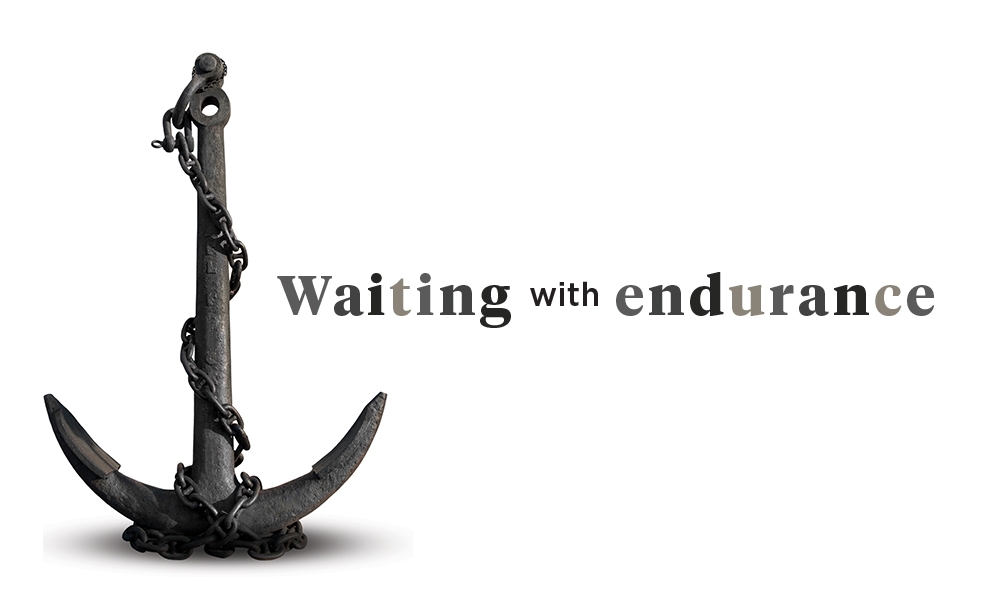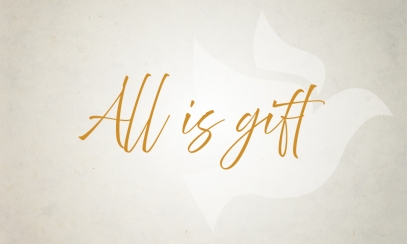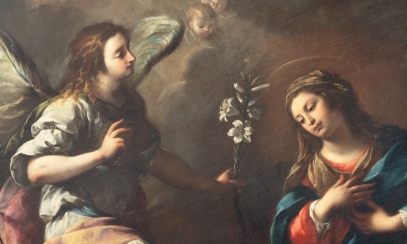
Waiting with endurance
Dear Brothers and Sisters,
We are still in this Year of Hope. Continuing our reflection on the Bible, we find that the New Testament offers hope in a new key.
Dear Brothers and Sisters,
We are still in this Year of Hope. Continuing our reflection on the Bible, we find that the New Testament offers hope in a new key.
Paul points out the advantage that the people of God have over those of no faith in God as he writes to the Ephesians (2:11-12): “Therefore, remember that at one time you, Gentiles in the flesh … were at that time without Christ … without hope and without God in the world.” Our ancestors in the faith had God, and that was a cause of great hope. However, note that here Paul mentions Christ. It is Christ who provides the real substance of our hope. What had been closed off to all of humanity, Gentile and Jew alike, has now been opened to us; the divine gift of hope is ours in Jesus Christ.
And allow me to be even more specific about this object of our hope. It is the resurrection from the dead. We know that our hope is not meant to be fulfilled in this world. Rather, we look to the future, when we shall see God face to face and share in his glory.
Even though the Greeks at the Agora in Athens mocked Paul for mentioning the resurrection, Paul persisted in teaching of the death and resurrection of the Lord as the heart of our faith. In fact, it was this very proclamation of the resurrection of the dead which drew so many followers to the Christian gospel, especially those who found themselves locked into social constraints and who, now at last, had confidence in a God who offered eternal bliss, something beyond the limits of this world.
Additionally, our confidence is not just in the goal that is presented to us, but in God who gives us the means to achieve that goal. Even in the face of trials and difficulties of this life, our pilgrimage is always one of joy as we anticipate eternal life and find joy in the grace God gives us to achieve that. We must give thanks for such grace, especially as we approach Thanksgiving Day.
It is interesting that the word “hope,” elpis, does not appear much in the New Testament except in Paul’s letters and the Letter to the Hebrews.
Paul notes in his Letter to the Romans that hope does not disappoint, that, faced with the trials he has experienced, he is able to boast “in hope of the glory of God.” (Rom 5:2-5) The foundation for such hope, Paul states, is that “the love of God has been poured into our hearts through the Holy Spirit that has been given to us.” Hope keeps us going; it is a living reality for us.
Now, Paul recognizes how fragile this can seem. Still, he extends this hope to all of creation. (Rom 8:18-25) Where everything may have the appearance of being “subject to futility,” we and all creation are groaning for redemption, which is nothing less than the fruit of the Spirit. He concludes: “For in hope we were saved. Now hope that sees for itself is not hope. For who hopes for what he sees? But if we hope for what we do not see, we wait with endurance.”
This hope is fragile. It is a gift that is so often under attack by the crosses we share. We need daily to voice Paul’s words: “May the God of hope fill you with all joy and peace in believing, so that you may abound in hope by the power of the Holy Spirit.” (Rom 15:13)
Bishop Earl Boyea
Fifth bishop of the Diocese of Lansing
Bishop Earl Boyea is the fifth bishop of the Catholic Diocese of Lansing.



